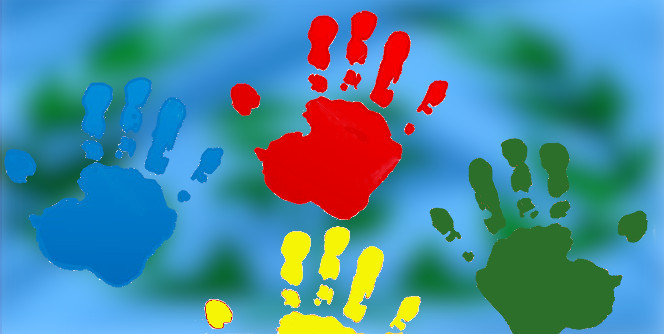HardTalk: Group Rights And Identity Politics

Introduction:
The term “Identity politics” is popularized as a political discourse in the higher educational institutions, since 1970s. Identity politics was originally emerged as a way of consciousness raising among marginalized [social] groups and as means to empower those groups who felt oppressed by the society around them [1]. The more overtly pragmatic debates about the merits of identity politics are philosophical questions about the nature of subjectivity and the self [2]. In a nutshell, the purpose of identity politics is to raise the self-awareness of marginalized social groups to provide them with a political power. It is a force to be reckoned within the mainstream of the political discourse of a given society. Hence “political culture” will be discussed in this piece as rationale explanation referring to the deep-seated ideas, beliefs, values, and behavioral orientation, that people have to carry around in their minds towards their political system.
Myself, as a writer, I am a prisoner of my own earlier writings. I can not escape from them, but I live with them and defend them as sociocultural and sociopolitical values that help the coexistence of our diversity. You could call me the “minority guy” or a “multiculturalist.” I have written extensively about the marginalization and grievances of our social groups, the alignments of our minorities to overcome their marginalization, and the lack of equitable power sharing to maintain the equilibrium of the social make up of our society. I oppose those who undervalue culture and its explanatory power in the politics of a nation. Culture is always viewed as part of the “superstructure” not less than economics to define the politics of a nation, as long as the the existing social groups or the diversities are identified by their cultures. In multicultural society, political administration means governing and managing the interests of diverse social groups. How ever we should be careful and sensitive when stepping into the terrain of political culture. And therefore, I am here to wear counterhegemonic lens to do my argument.
Historical Background
The slogan of one nation, one culture, and one people, that has its roots in the classical liberalism (whose proponents extend from John Locke to J.S. Mills) was for culturally homogeneous nation-states [wekipedia]. Equally, the “classical Republicanism of Rousseau that was pronounced in the practice of French revolution” also infer as: that the National Assembly expressed in the deliberation of the Assembly is “the general will of the people of a homogeneous nation-state”. These kind of worldview is not compatible to sociopolitical practice for post-colonial states with multicultural components.
The notions of Western Liberalism that the bearer of self-determination is the the culturally homogeneous nation and the bearer of human right is the individual, are so restricted that they have resulted in disfranchising large number of groups and individuals in Africa [3]. If we took this Western political diet as a gospel of truth, the logic that follows is, we could claim that cultures other than the majoritarian will either have the choice of integrating with the “unitary nation-state” or could opt forming their own “culturally homogenous states”. In Eritrea, multiculturalism challenges the ideology of the unitary nation-state by organizing cultural social groups, demanding a fair share in a political power and economic distribution. I will address this issue later as I proceed in my writing.
Multicultural Liberalism
According Duncan Ivison, multiculturalism refers to broad array of theories, attitudes, beliefs, norms, practice that seek to provide public recognition of and support for accommodation of non-dominant ethno-cultural groups [and] aims to go beyond the protection of basic civil and political liberties associated with liberal citizenship [4]. Multiculturalism has five levels of descriptional explanations (a) empirical fact (b) ideology (c) policy and program (d) practice and (e) counter hegemony [5]. Ideologically, multiculturalism points to the importance of culture and group affiliations and can be seen as a challenge to the conception of individual rights [6]. Albeit, it isn’t. Multiculturalism in liberal democracy, do in fact, demands the state to acknowledge and work for cultural pluralism and be open to the possibility of legislating difference. That is what Charles Taylor called it “the politics of recognition – the feeling of being acknowledged, understood, and valued equally”. Therefore, multiculturalism increase sensitivity and response to the needs of minority social groups
More importantly, the “politics of difference” by Young is broader than “the politics of recognition” by Taylor, for it focuses not only on culture, but also on other forms of group difference. Young observed the “politics of difference” is distinct as oppose to self-assertive [7]. Both Young and Taylor emphasize on the relationship between ‘identity and power’ – focusing primarily on the ‘power of norms’ and ‘power of symbols & recognition.’ The politics of difference challenge the ideal of difference-blind liberalism and the notion that equality is synonymous with equal treatment [8]. Furthermore, many scholars have developed similar argument about the relationships of culture and choices. For instance, Kymlicka sees cultural membership as primary good which dictates the extents and limits of autonomy [9].
The cause of Identity politics in Eritrea
There was always a split in the Eritrean political soul, its psyche, its culture, and hence its identity. The basic sociopolitical fault lines are reflected between the two major religions (Christian and Muslims) and the two major regions (Highlanders and Lowlanders), since late 1940s. These “political cultures” have devolved in to “identity politics” of our “social groups” that are commonly known as the building bocks to our “national identity.” Our social groups have allegiance to their “nation” and to their own “groups” to defend the sovereignty of the nation as well as to the rights of their own groups. The rise of “group rights” and “identity politics” in Eritrea are caused by the nature of the regime of Asmara and its policy. Isaias and his ruling party (PFDJ) have keenly thought to play on these divided Eritrean sentiments and have successfully exploited it, in order to stay in power.
Nations where culture and identity are not uniformly divided, minorities employ the politics of identity as a political instrument to advance their agenda. Eritrean social groups can not be exempted from this politico-cultural phenomenon, as long as there is a marginalization of the minorities and as long as they don’t have a say in the political discourse of their nation.
Identity politics as an expression for political identity groups, are indeed the inevitable byproduct from the struggle of individuals for “freedom of association.” Hence, as long as individuals are free to associate, “identity groups and identity politics” of all kinds of forms and shapes will naturally exist, especially in multicultural societies. Reciprocate identification will then be the central to the raison d’être of identity groups.
Moral Courage in Politics
Commitment to principle is backing your words with actions. Politics demands courage. Courage in politics are exhibited by those who step outside of their comfort zone to meet the challenge, who are passionate about their beliefs and values, and never deterred by adversity or afraid of what people may think of them. Courageous people are tough but fair. They are trustworthy, objective, fair, tolerant, and they stand up against all kind of injustice.
Fighting against a tyrant in itself only does not make us courageous nor does it makes us look judicious and fair minded. The fight of fair and judicious minds are holistic in nature. While they are fighting against the tyrant, they search a solution to our socio-cultural and sociopolitical problems created by the regime’s policy, building trusts among our social groups and weaving the threads that holds our social fabric.
Recently, I have read an open condemnation, in the Eritrean social media, against “identity politics” and “group rights” as a principle and as phenomenon in the Eritrean political landscape. I was saddened, because it was perpetuated against our minorities who are organized to address their grievances based on the principle of “freedom of association” in any form or shape. Instead of becoming an alternative to the regime, who made them aggrieved, and try to address their grievances, why are those who called themselves justice seekers join to the regime’s policy of marginalization and defend the tyranny of the majority indirectly? When there is no trust with each other and unable to listen each other, Slowly but surely, will lead us to a political paralysis. In any case this writer will attempt to address their grievances. In my view, the grievances of our minorities could be addressed by “democratic representation” and by devolving “political and administrative power” to the periphery or to the administrative units of Eritrean state.
Unicameral vs Bicameral
Generally speaking, unicameral parliament is applicable for homogeneous societies and for centralized unitary government (CUG) intended for a single party rule. Bicameral parliament is applicable for heterogeneous society and for decentralized unitary government (DUG) that allows pluralism of multiparty system. Our Eritrean diversity requires two chambers of legislative body, one by equal representative and the second by proportional representation. This system will depict depict that our minorities will get fair share in our political discourse in one chamber of the legislative body where it is designed for “equal proportion”. In the second chamber (proportional representation) where it depends on the number of the population of the electoral districts, our minorities will compete as representative of the competing parties.
Centralized Unitary vs Decentralized Unitary
Centralized unitary government (CUG) indicates that the power of the “periphery” and the power of the “center” is controlled by the executive body at the central government – as depicted in the 1997 constitutional document. The peripheries or the units of administrations are administered by unelected “delegate” from the center. Citizens in the administrative units will not be granted with the power to elect their administrators nor do they have the power to exercise politics within their administration units. Decentralized Unitary Government (DUG) on the other hand, grants power to the peripheries or administrative units – the power to administrate themselves politically and administratively. It means certain power is devolved to the peripheries. Hence, DUG is all about power sharing. According the straightforward empiricist, Arend Lijphart, power sharing means participation of representatives of all significant groups in political decision making [Lijphart, 2004]. This writer, therefore, as a proponent of Lijphart, advocates for representational democracy and equitable power sharing. In my article of Jan 17, 2014: “The Contours of changes and the Equilibrium of its parts,” I have explained it in detail, as to the difference between CUG and DUG, and why DUG will give political and administrative power to our people than CUG.
References
[1} Wiards, Howard J., “political culture, political science, and identity politics; An easy alliance,” April 8, 2016.
[2] Taylor, Charles, 1989, “Source of the self: the making of the modern identity, Cambridge, MA: Harvard university press.
[3] Mohanty, Chandra, 1998, “Femininst encounters: Locating the politics of Experience.
[4] Duncan, Ivison, “Introduction of multiculturalism as public idea” in Duncan Ivison ed. The Ashgate research companion to multiculturalism [Burlington, VT: Ashagate, 2010.
[5] Augie, Fleras, “The politics of multiculturalism” (NY, NY,Palgrave Macmillan, 2009).
[6] Ulf, Morkentam, “Group specific rights as political practice”, in Ishtag SAhmed ed.
[7] Young, Iris, “Ruling norms and the politics of difference”, 1999, 416.
[8] Ibid (Iris Young)
[9] Kymlicka, Will, “Multicultural citizenship: A liberal theory of minority rights,” 1995, 76.
[10] Lijphart, Arend “constitutional design for divided society,” Journal of Democracy, April 2004.
[11] Hidrat, Amanuel, “The contours of change and the Equilibrium of its parts,” Awate.com, Jan 17, 2014.


Awate Forum